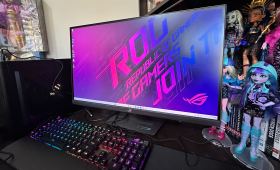Upon release, the original System Shock suffered from comparison to DOOM. It wasn’t alone, of course. DOOM inspired countless clones that rarely matched its prodigious mastery of the nascent first-person shooter (FPS) genre. Indeed, so new was the FPS as a gameplay model that anything that presented a first-person view down the barrel of a gun into a real-time 3D world was measured against DOOM. Even the term FPS didn’t come until much later; we were stuck calling them ‘DOOM-clones’ for years.
But System Shock was never a DOOM-clone. It was always a role-playing game. Sure, it was first-person, its world depicted in cutting-edge real-time 3D, it had a gun (or occasionally a wrench) sticking up from the bottom of the screen, and in its combat and movement it leaned into action more than most other RPGs of the era, especially on PC. But it was first and foremost an RPG in the sense that what mattered most in every situation was how you had prepared yourself ahead of time.
Combat, for example, was never about your ability to circle-strafe an enemy, weaving in and out of its attack patterns, but rather a case of choosing the right tool for the job. This is equally true of the remake. Targeting an enemy is not the challenge; their behaviour is limited and predictable. Instead, your focus is picking a weapon that’s going to be effective against the current enemy while weighing up which of the several scarce ammo types you’re most willing to expend to take them down.
Inventory space is tight and resources must be constantly managed. The choices you make over what gear to carry with you and what to store in the cargo lift on each level carry consequences that shape your experience of every encounter. It feels like the first sketch of the kind of improvisational combat encounters later seen in a Deus Ex or a Bioshock. Rough-cut, perhaps, but the same kind of brilliance shines through.
System Shock was always more narratively sophisticated than DOOM. Killing off (most of) the cast before the player arrives, and leaving you to explore an essentially abandoned space station, was a design decision made to avoid interactions with NPCs via the kind of basic branching dialogue trees employed by RPGs of the time. Instead, you found notes and voice recordings left by station staff on data sticks and computer terminals. With System Shock’s enhanced CD-ROM edition, many of these were even voice-acted – and the audio log as a concept was born.
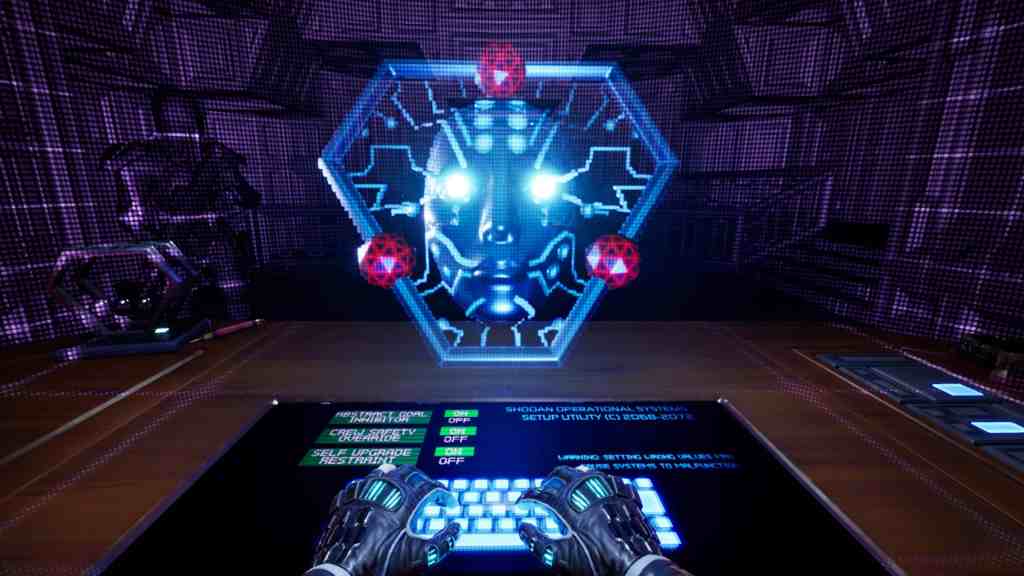
Best of all, the game’s antagonist, the AI known as SHODAN, was fully-voiced. Appearing on nearby computer screens she’d mock and taunt your every step, announce she’d pulled the rug out from under you, or launch an angry tirade as you defeated an aspect of her grand plan, her glitchy, stuttering delivery evoking both the callousness of a dispassionate computer program and the spiralling hysteria of an increasingly unhinged despot.
Through SHODAN’s outbursts, the desperate voicemails and logs from doomed station workers, you would have to piece together not only what disaster had happened but what you next needed to do to undo it. In its progression structure, System Shock offered little in the way of a guiding hand. That remains true of the remake to an extent that simultaneously feels like an archaic hold-over and precisely the sort of absence of instruction anyone schooled on a Souls game might expect and certainly appreciate.
There are no mission markers pointing you towards the next relevant section of the complex, bewildering, multi-floored station; instead you’re scanning through emails for references to areas you’ve seen and poring over the map to spot an unexplored corner that might hold the key – occasionally even a literal one at that.
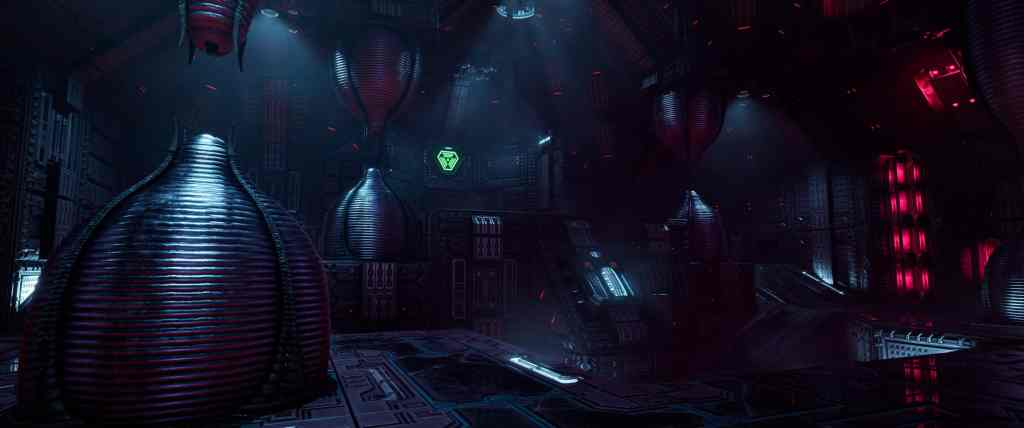
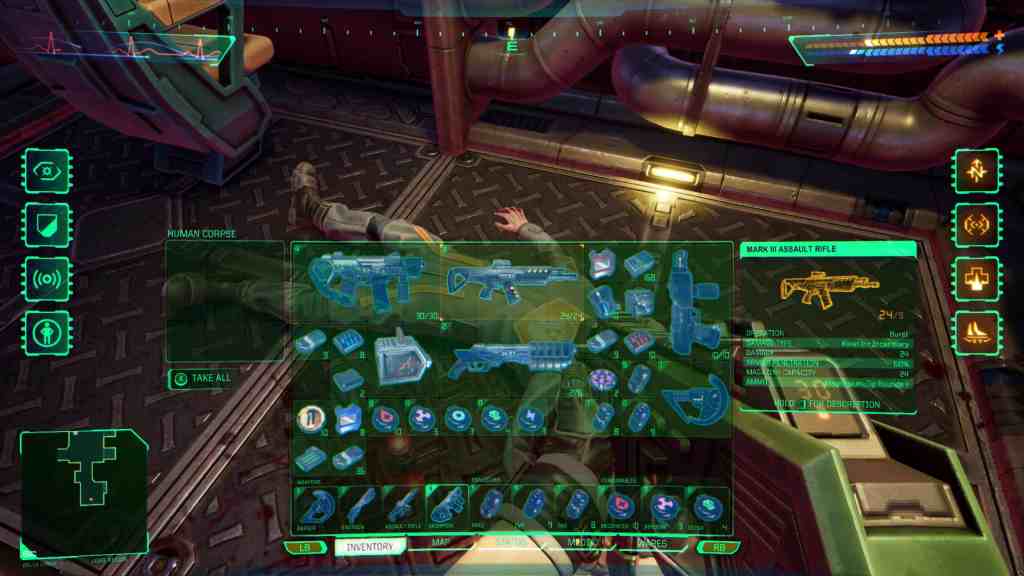
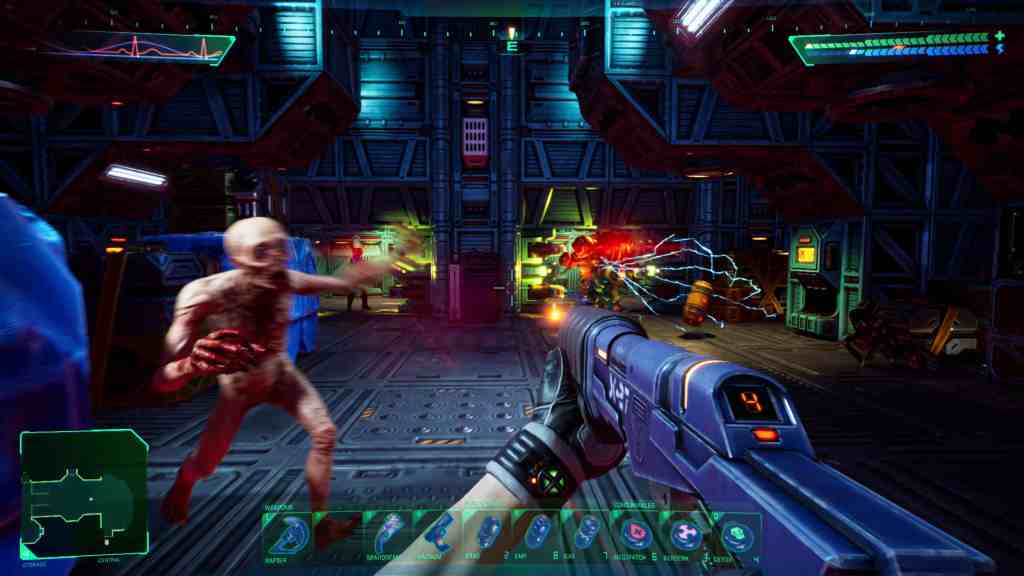
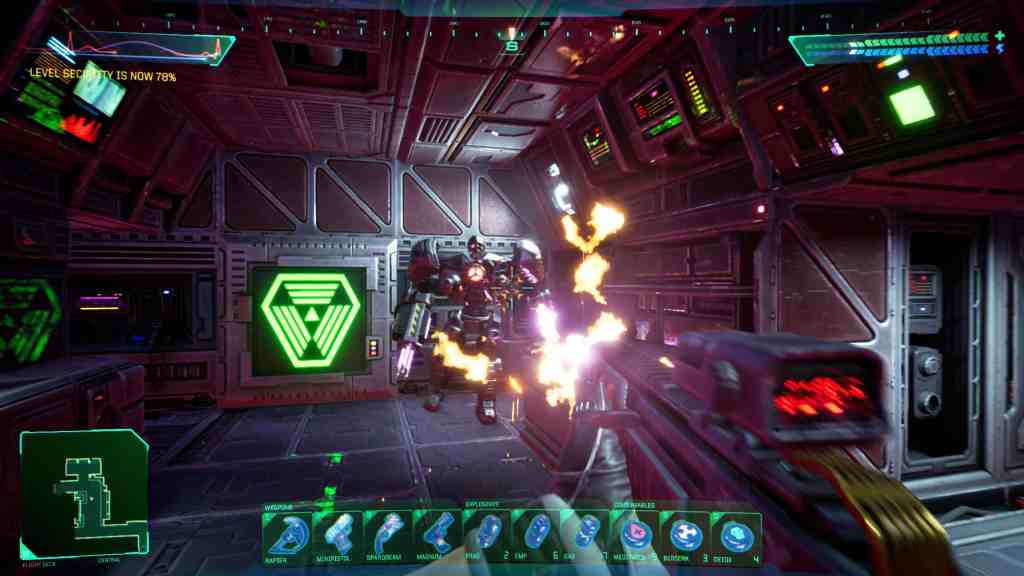
It’s so satisfying to poke and prod at each floor of the station, gradually uncovering its secrets, making mental notes of which areas to return to later, and steadily piecing it all together as a continuous environment. Of course, it’s still a maze that would never make for a plausible space station, but it’s endlessly rewarding as a space you’ve traversed, understood, and conquered.
The areas that Nightdive have tweaked are all welcome additions. Graphically, it’s just about as perfect an update as you would hope for. The aesthetics of the original have been preserved while the modern lighting effects and more detailed and colourful texture work fashion the station’s rooms and corridors with greater coherence. The short cyberspace sections have also been overhauled, not just visually but to lend them a far more action-shooter feel to the extent that they now look and play almost akin to a first-person Geometry Wars. Trips into cyberspace feel genuinely different and offer a welcome palate cleanse before you return to exploring the rest of the ship.
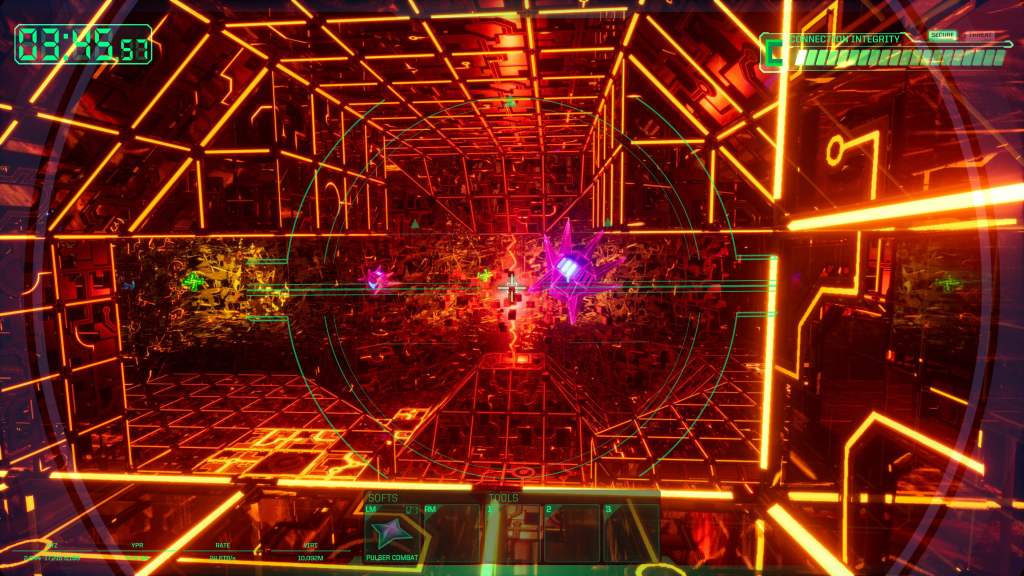
To play System Shock today is in some ways to play the last 30 years of video games. In developing its fraught cyberpunk tale of survival aboard a space station in the thrall of a rampant, contemptuous AI, Looking Glass Technologies laid the foundation for many of the most respected games of the past three decades, from Deus Ex to Bioshock and Dishonored, from Metroid Prime to Dead Space and Portal.
The System Shock remake feels both quaint, a primitive product of an earlier, more innocent era, and cutting-edge, keenly attuned to a mode of player-centric design that is back in fashion. Attitudes towards its defining qualities have come full circle. In its willingness to embrace systems-driven immersion and its reluctance to heavy-handedly guide the player, what was once celebrated as complex and granular, then derided as convoluted and obtuse, is now once again met with acclaim. In this sense, it’s a game whose moment has vanished yet one that has never felt more relevant.
It helps that the source material was ahead of its time. By paying the 1994 original the utmost respect–retaining core systems, quirks and all, while changing on peripheral aspects entirely for the better–Nightdive Studios has rebuilt a classic game into something significantly better.
Five Stars: ★★★★★
System Shock
Platforms: PC
Developer: Nightdive Studios
Publisher: Prime Matter
Release Date: 31 May 2023
The PC version of System Shock was provided and played for the purposes of this review. GamesHub has affiliate partnerships. These do not influence editorial content. GamesHub may earn a small percentage of commission for products purchased via affiliate links.

